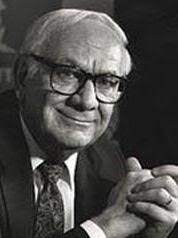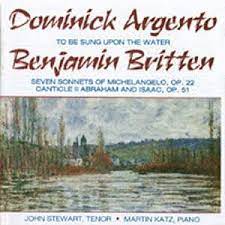
Argento, Dominick
Dominick Argento, considered to be America’s pre-eminent composer of lyric opera, was born in York, Pennsylvania in 1927. At Peabody Conservatory, where he earned his Bachelor’s and Master’s degrees, his teachers included Nicholas Nabokov, Henry Cowell, and Hugo Weisgall. Argento received his Ph.D. from the Eastman School of Music, where he studied with Alan Hovhaness and Howard Hanson. Fulbright and Guggenheim Fellowships allowed him to study in Italy with Luigi Dallapiccola and to complete his first opera, Colonel Jonathan the Saint. Following his Fulbright, Argento became music director of Hilltop Opera in Baltimore, and taught theory and composition at the Eastman School. He has been a member of the faculty of the Department of Music at the University of Minnesota since 1958. Among other honors and awards, he received the the Pulitzer Prize for Music in 1975 for his song cycle From the Diary of Virginia Woolf. In addition, the composer was elected to the American Academy of Arts and Letters in 1979.
Although Argento’s instrumental works have received consistent praise, the great majority of his music is vocal, whether in operatic, choral, or solo context. This emphasis on the human voice is a facet of the powerful dramatic impulse that drives nearly all of his music, both instrumental and vocal. Writer Heidi Waleson has described Argento’s work as “richly melodic…[his] pieces are built with wit and passion, and always with the dramatic shape and color that make them theater. They speak to the heart.”
Three major works written during his years at Eastman were performed at the Festivals of American Music: the opera-buffa The Boor (1957), the ballet The Resurrection of Don Juan (1956), and a concerto for soprano and orchestra, Ode to the West Wind (1956). Following his arrival in Minnesota, Argento accepted a number of commissions from significant organizations in his adopted state. Among these were the Saint Paul Chamber Orchestra, who commissioned his suite Royal Invitation (1964); and the Civic Orchestra of Minneapolis, who commissioned Variations for Orchestra [The Mask of Night] (1965). Argento’s close association with Sir Tyrone Guthrie and Douglas Campbell, directors of the Minnesota Theatre Company led to his composing incidental music for several Guthrie productions, as well as a ballad opera, The Shoemaker’s Holiday (1967).
The 1970’s and 1980’s saw the composer working increasingly in the song cycle form, while still writing operas and orchestral music. Among his major song cycles are: Letters from Composers (1968); To Be Sung Upon the Water (1973); From the Diary of Virginia Woolf (1975); the choral I Hate and I Love (1982); The Andree Expedition (1983); and Casa Guidi (1983).
Since the early 1970’s the composer’s operas, which have always found success in the U.S., have been heard with increasing frequency abroad. Nearly all of them, beginning with Postcard from Morocco (1971), have had at least one European production. Among these are The Voyage of Edgar Allan Poe (1976), Miss Havisham’s Wedding Night (1981), and Casanova’s Homecoming (1984); Robert Jacobson of Opera News described the latter work as “a masterpiece.” The Aspern Papers was given its premiere by Dallas Opera in November 1988 to great acclaim, was telecast on the PBS series Great Performances, and was again presented, to critical praise, by the Washington Opera in 1990. It since has been heard in Germany and in Sweden; in July 1996, San Francisco Opera is presenting the work.
Recent orchestral works include Te Deum for chorus and orchestra (1987), and Capriccio [“Rossini in Paris”] (1986). A Toccata of Galuppi’s, Argento’s latest orchestral work, is a setting for mixed chamber choir, keyboard, and string quartet of a text by Robert Browning; David Noble of the Albuquerque Journal, writing of the piece’s August 1990 premiere, stated: “Argento, who is perhaps the leading opera composer in this country, was more than equal to dealing with Browning’s masterpiece. The shaded, atmospheric flow of Argento’s music matched the insinuating style of the poem wonderfully.”
